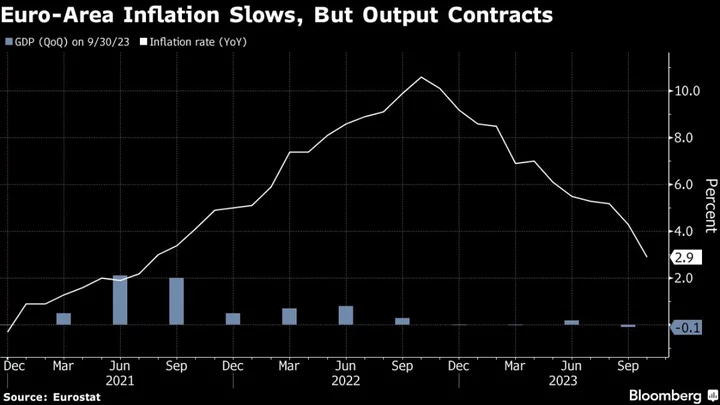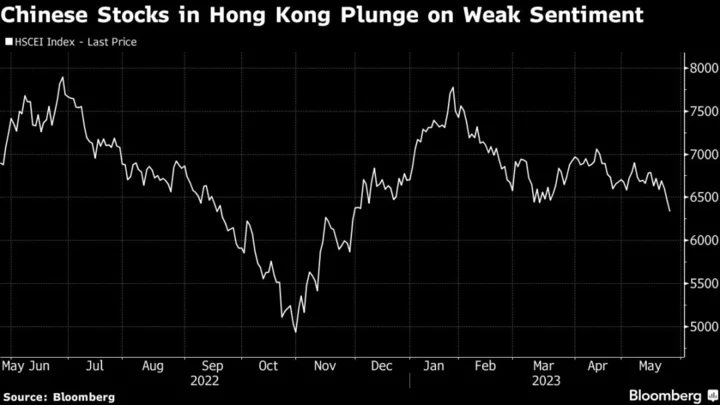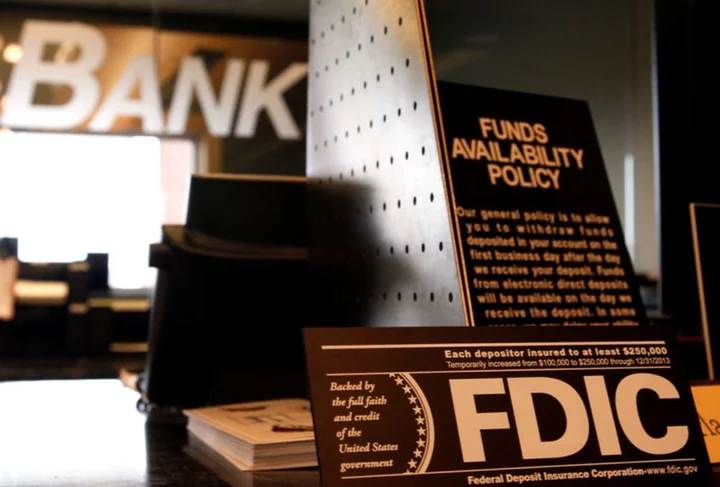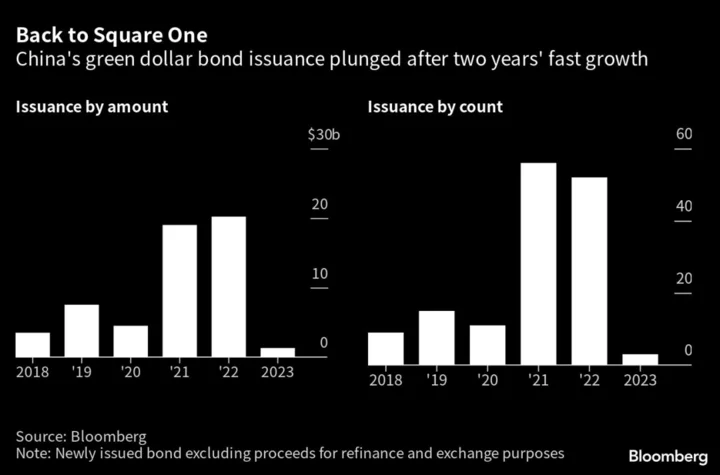European Central Bank President Christine Lagarde said that keeping the deposit rate at 4% should be enough to tame inflation, but officials will consider raising borrowing costs again if they need to.
Weeks after policymakers refrained from a further increase for the first time since their tightening cycle began last year, she signaled to an event organized by the Financial Times that the central bank is gaining confidence that current monetary settings should do the trick.
“The level where we are at the moment, if we sustain it for long enough — and we can debate that, of course — will make a significant contribution to bringing inflation back to our 2% target,” Lagarde said on Friday. “If major shocks come up, depending on the nature of the shocks, we’ll have to revisit that.”
The ECB president spoke in the wake of data showing that headline inflation slowed to 2.9% in October, the weakest pace in two years. The prospect of a wider Middle East conflict that could stoke oil costs is a threat to the outlook that officials are watching closely.
“We have to be really monitoring the price of energy going forward,” Lagarde said. “We should not assume that this respectable 2.9 headline number is something that should be taken for granted and for long.”
At the Oct. 26 press conference, she brushed aside questions on the possibility of considering rate cuts, saying it would be “premature.”
Since then, colleagues have begun publicly debating the matter, though Bundesbank president Joachim Nagel insisted this week that such talk isn’t helpful and Bank of France Governor Francois Villeroy de Galhau said it’s “too soon to talk about a cut.”
On Friday, Lagarde cautioned that any such reduction isn’t going to happen “in the next couple of quarters,” adding that “long enough is long enough.”
Questioned on faster quantitative tightening, the ECB chief insisted there won’t be outright sales of debt, but that a discussion on reinvestments in the pandemic emergency bond purchase program “is to be had” by officials at some point.
That’s an area where the ECB’s monetary policy overlaps with national fiscal matters. With the European Union’s rule that limits deficits to 3% of gross domestic product due to kick in again next year, ministers meeting on Thursday in Brussels attempted to advance discussions on how that should be interpreted.
Lagarde said that she was a bit reassured by progress shown there, while insisting that an agreement on the matter is “critically important” and the lack of one currently leaves her “uncomfortable.”
(Adds Villeroy in seventh paragraph)









